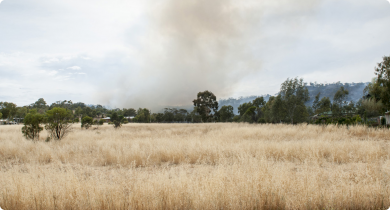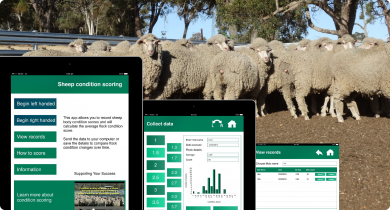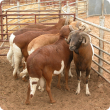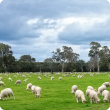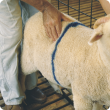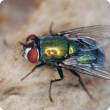Livestock management
Management of livestock must take into account variable seasonal factors, fluctuating markets and declining terms of trade. The most successful producers have a good knowledge of market requirements, matching product quality to suit. There are many factors that can determine the productivity and profitability of a livestock enterprise. These include the supply and quality of feedstuffs, the use of the most appropriate genetics, ensuring high health standards, optimising housing or environmental conditions, meeting quality assurance requirements, and having a sound knowledge of market requirements. This requires good communication along the value chain.
The Department of Primary Industries and Regional Development has technical expertise in a range of areas related to livestock management but acknowledges that there are many other sources of information that producers should be encouraged to seek out. There are many grower groups who play an important role in encouraging discussion amongst producers to improve adoption of new technology, as do private consultants and university scientists.
See Also
Filter by search
Filter by topic
- (-) Remove Sheep filter Sheep
- Livestock species (118) Apply Livestock species filter
- Management & reproduction (44) Apply Management & reproduction filter
- Pests, weeds & diseases (27) Apply Pests, weeds & diseases filter
- Feeding & nutrition (26) Apply Feeding & nutrition filter
- Livestock health & diseases (25) Apply Livestock health & diseases filter
- Diseases (25) Apply Diseases filter
- Livestock parasites (19) Apply Livestock parasites filter
- Livestock research & development (17) Apply Livestock research & development filter
- Biosecurity & quarantine (17) Apply Biosecurity & quarantine filter
- Biosecurity (16) Apply Biosecurity filter
- Livestock disease surveillance (15) Apply Livestock disease surveillance filter
- Livestock biosecurity (12) Apply Livestock biosecurity filter
- Crops (11) Apply Crops filter
- Beef cattle (11) Apply Beef cattle filter
- Pastures (10) Apply Pastures filter
- Genetics & selection (8) Apply Genetics & selection filter
- Pasture management (7) Apply Pasture management filter
- Goats (4) Apply Goats filter
- Dairy cattle (4) Apply Dairy cattle filter
- State Barrier Fence (3) Apply State Barrier Fence filter
- Invasive species (3) Apply Invasive species filter
- Animal welfare (2) Apply Animal welfare filter
- Stockfeed (2) Apply Stockfeed filter
- Food, export & investment (2) Apply Food, export & investment filter
- Mechanical, physical and cultural (2) Apply Mechanical, physical and cultural filter
- Control methods (2) Apply Control methods filter
- Climate, land & water (2) Apply Climate, land & water filter
- Pests (1) Apply Pests filter
- Pest animals (1) Apply Pest animals filter
- Pest mammals (1) Apply Pest mammals filter
- Rangelands (1) Apply Rangelands filter
- Meat quality (1) Apply Meat quality filter
- Production & postharvest (1) Apply Production & postharvest filter
- Pigs (1) Apply Pigs filter
- Climate change (1) Apply Climate change filter
- Breeding & varieties (1) Apply Breeding & varieties filter
- Agricultural exports (1) Apply Agricultural exports filter
- Climate & weather (1) Apply Climate & weather filter
- Horses (1) Apply Horses filter
- Land use (1) Apply Land use filter
- Livestock movement & identification (1) Apply Livestock movement & identification filter

